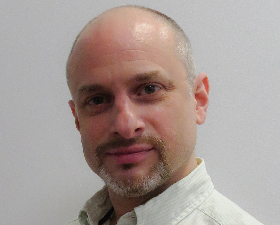Bestr Steering Committee 4/5: Simon Whittemore, Jisc
Simon Whittemore is Head of Change and Enterprise at Jisc

I accepted the invitation to join the .Bestr Board because I believe in the transformational capability of education, the civilising effect of learning about each other and the world, and the opportunity for each individual to fulfil their potential, in an interdependent relationship with rest of humanity.
In this context digital technologies, carefully managed, can bridge wider gaps and create new opportunities. Bestr, and the Jisc Employability Skills Match, service are both at the forefront of these new opportunities. I bring a background in higher education policy, strategy, funding and technology to the role, especially third mission, as well as management consultancy and teaching.
There is a widespread recognition that traditional academic awards will no longer sufficient by themselves to recognise and provide the skills and capabilities needed by the society and economy of the future. Whether it be debates over the degree classification in the UK, the emergence of initiatives such as the School of Life , or the proliferation of open badges, there is a growing recognition that being an effective and conscientious citizen of the world requires not only learning and knowledge, but also work experience and life experience.
Enlightened employers – and that includes all who wish to retain or increase their market penetration – realise that simply screening for the most academically successful will no longer deliver the results they need; their customer base is diverse so they need diversity in their staff to address this. Employers need candidates with softs skills such as versatility, empathy and the ability to work across cultural and organisational boundaries. Et voila, are the same life skills we all need!Learners who have grown up in difficult circumstances, from disadvantaged backgrounds, may actually have, in some cases, better developed employability qualities such as determination and resilience – through experience – than some from privileged backgrounds.
Aspiration is therefore relative term. There is a Europe-wide supply and demand problem with regard to jobs and candidates; many advertised roles are often unfilled. For example, despite the demand in the IT industry in the UK, there are high levels of unemployment among computer science graduates.
What if we enabled a free pan-European online exchange of roles and skills? My bet is that this would not only help fill unfilled vacancies but also improve graduate employment and create new opportunities. But let’s remember opportunities can be in further learning, social enterprise, or research too; in the modern economy we need to redefine what ‘employment’ means.
As a Board member of Bestr, I am delighted to have the opportunity, with a range of illustrious international colleagues, to explore these issues and to guide and support a pioneering venture, which together with other national initiatives, gives Italy and its partners the chance to take a leading role in transforming the education to employment landscape, and maximising the potential of mobile, lifelong, life-wide learners.